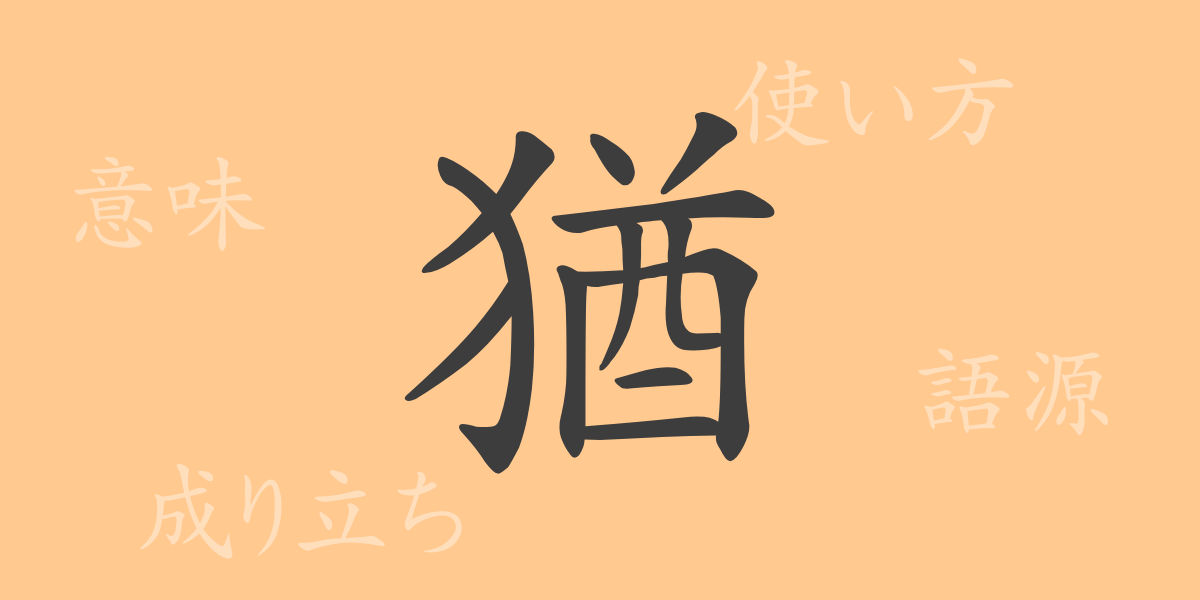Japan’s written culture is profound, enabling a wide range of expressions. Among the 常用漢字 (Jouyou Kanji), the character “猶” (you) is frequently encountered, especially in literary and historical contexts. This article delves into the origins, meanings, usage, and even idioms and proverbs involving “猶” (you), aiming to deepen your understanding of this fascinating kanji.
Origins of 猶 (you)
The kanji “猶” (you) is an ancient character that originated in China. It is composed of the radical for dog, “犬” (inu), combined with the character “酋” (shu). Originally, it depicted a dog waiting for its master, which led to the meaning of “still” or extending time. From extending time or state, it evolved to imply comparison or analogy.
Meanings and Usage of 猶 (you)
“猶” (you) means “still,” “yet,” or “even now,” indicating a state that continues. It is also used metaphorically to mean “like” or “as if.” In the word “猶予” (yuuyo), it means “to extend a period,” functioning as a character that signifies extension or continuation in various contexts.
Readings, Stroke Count, and Radical of 猶 (you)
The kanji “猶” (you) has distinct readings and structure.
- Readings: On’yomi (音読み) is “ユウ” (yuu), Kun’yomi (訓読み) is “なお” (nao)
- Stroke count: 9 strokes
- Radical: 犬部 (けものへん, kemonohen)
Idioms, Proverbs, and Phrases Using 猶 (you) and Their Meanings
There are numerous idioms, proverbs, and phrases containing “猶” (you). Here are a few examples with their meanings explained:
- 猶予 (ユウヨ, yuuyo): To extend time. To postpone a specific deadline.
- 猶豫 (ユウヨ, yuuyo): To hesitate in making a decision. A state of indecision.
- 猶存 (ユウゾン, yuzon): Still remaining. Continuously existing.
- 猶如 (ユウジョ, yuujo): As if… Like something. One thing resembling another.
Summary of 猶 (you)
The kanji “猶” (you) plays a significant role in Japanese due to its extensive meanings and diverse usage. Whether indicating the continuation of time or state, comparison, or extension, “猶” (you) is a kanji worth knowing to enrich your expression. Mastering this character allows you to convey nuances more precisely.

























